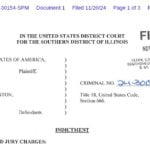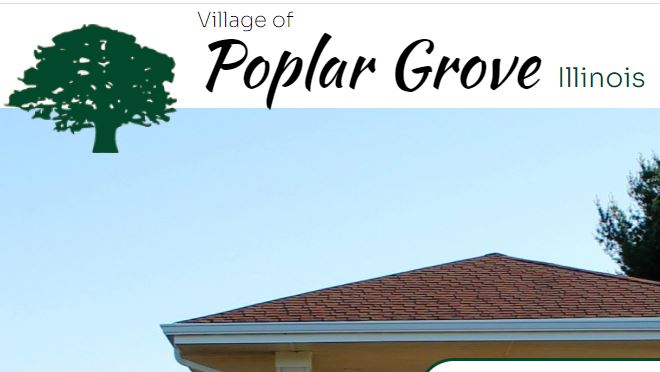Poplar Grove, IL. (ECWd) –
The Poplar Grove Electoral Board appears to be completely out of control and also appears to be assisting a candidate in extracting or discovering information having absolutely nothing to do with the powers and functions of an electoral board.
There were objections filed against 4 candidates for village trustee, and the electoral board convened.
Since the first meeting, there has been nothing but confusion, accusations, subpoenas, more confusion, FOIAs, and several rounds of recusals and appointments.
According to the Illinois Election Code, an electoral board is required to adopt rules at the first meeting of the board, yet this board adopted different rules at its 3rd or fourth meeting, scrapping some of the rules it adopted at its first meeting. This violates the Election Code.
Then comes the subpoenas, which, by the admission of the requesting parties, seek to discover any alleged communications between the Mayor and others regarding the petition objections. The subpoenas are completely out of the scope of what an electoral board is empowered to investigate or review, especially so when the Mayor is no longer an electoral board member.
The 4th Appellate Court case, Nader V State Board of Elections is on point for the issuance of subpoenas of an electoral board (emphasis ours):
Under section 10-10, the Electoral Board has the power to “administer oaths and to subpoena and examine witnesses and at the request of either party the chairman may issue subpoenas requiring the attendance of witnesses and subpoenas duces tecum requiring the production of such books, papers, records and documents as may be evidence of any matter under inquiry before” it. 10 ILCS 5/10-10 (West 2002). “The plain language of section 10-10 gives the chairman the discretion to issue subpoenas.” Craig v. Electoral Board of Oconee Township, 207 Ill. App. 3d 1042, 1048, 556 N.E.2d 775 (1991). However, as stated above, under section 10-10 of the Election Code, the Electoral Board’s “inquiry” is limited to whether a candidate’s nomination petition complies with the requirements of the Election Code. See Kozel, 126 Ill. 2d at 68; Wiseman, 5 Ill. App. 3d at 257.
In this case, the Candidates sought to have the Electoral Board investigate the manner in which the Objector compiled his objections. The Electoral Board, however, is no more required or empowered to conduct an investigation into how the Objector’s petition was compiled than it is to do so into the methods employed by the Candidates in obtaining signatures in their petition. Rather, the Electoral Board can determine only whether the Candidates’ nomination petition complies with the requirements of the Election Code. Here, the Electoral Board was required to determine how many of the signatures in the Candidates’ petition were invalid based on the Objector’s allegations, i.e., due to illegible signature, incomplete voter information, incomplete circulator verification, forgery, or voter fraud. The Electoral Board’s authority to do anything must either “arise from the express language of the statute” or “‘devolve by fair implication and intendment from the express provisions of the [statute] as an incident to achieving the objectives for which the [agency] was created.'” Vuagnizux, 208 Ill. 2d at 188, quoting Schalz, 113 Ill.2d at 202-03. Nowhere in the Election Code is the Electoral Board allowed or required to conduct an investigation into the propriety of the methods used by the Objector in raising his objections to a candidate’s nominating petition.
Moreover, under section 10-10, the investigatory power of the Electoral Board is specifically “limited to a consideration of objections to a candidate’s nomination papers.” See Kozel, 126 Ill. 2d at 68; Wiseman, 5 Ill. App. 3d at 257. In other words, its inquiry is limited to the validity of those objections; whether those objections were compiled by State employees in violation of article 9 of the Election Code or other sections of the Election Code is simply not relevant to the issues of whether the Candidates’ nominating papers satisfied the formal requirements in section 10-4 and whether the petition contained enough valid signatures to be placed on the November 2 ballot. The Electoral Board correctly rejected the Candidates’ subpoena request. See Wiseman, 5 Ill. App. 3d at 257-58 (finding that the Electoral Board properly refused to issue subpoenas requested by objectors relevant to issues beyond its scope of inquiry).
Additionally, in a previous meeting, the electoral board’s attorney said the board did not have to rule on a Motion to Quash the subpoenas. We disagree because their job is to rule on the motions before them, not ignore them.








No Comments
Sorry, the comment form is closed at this time.